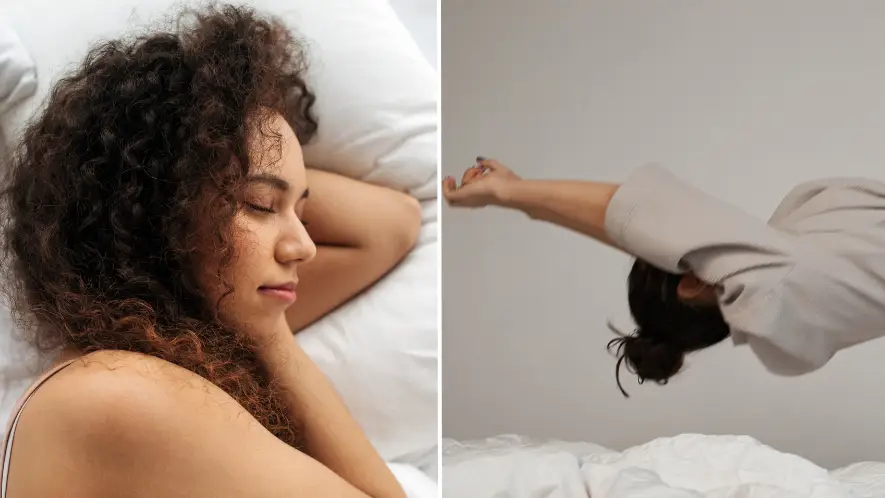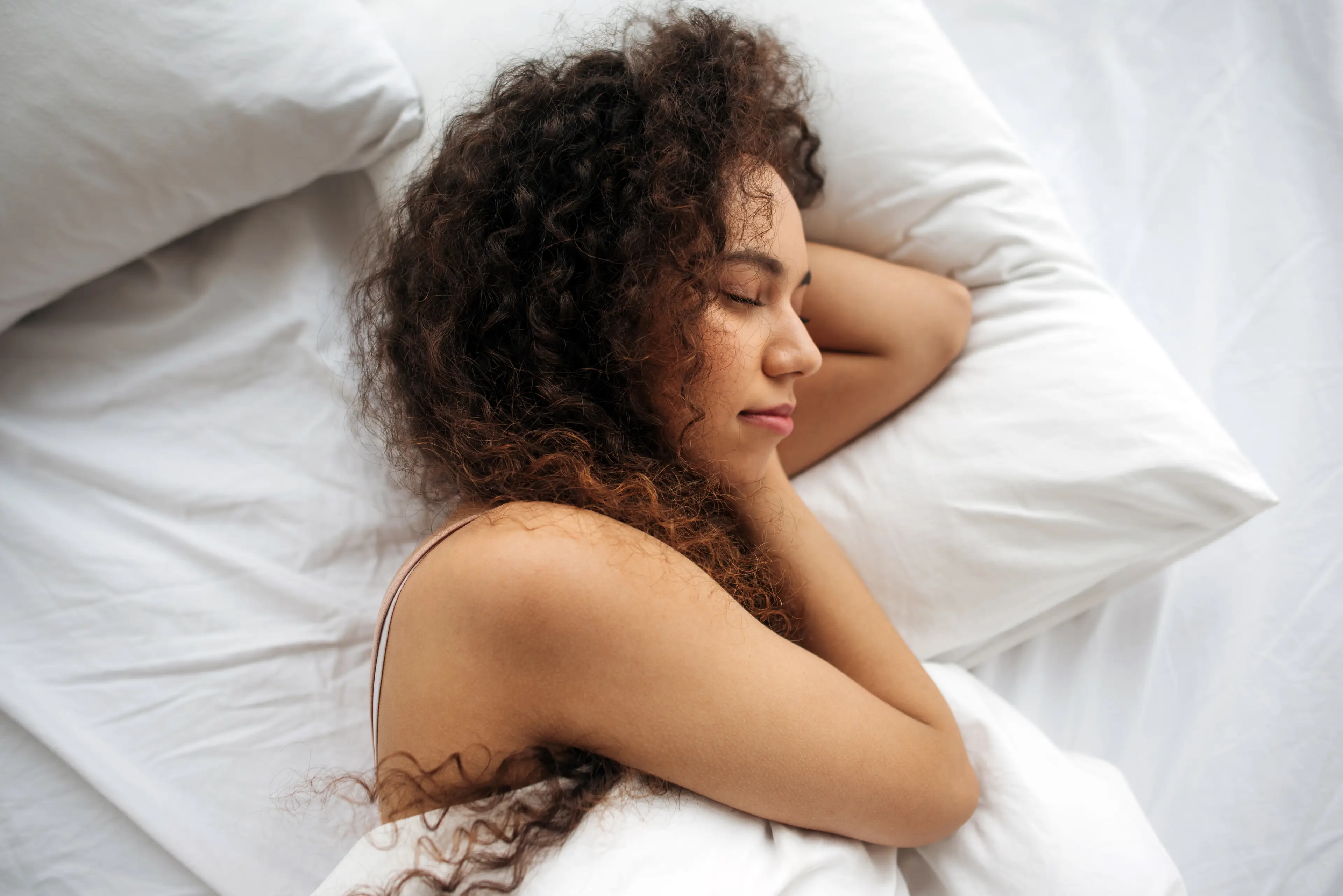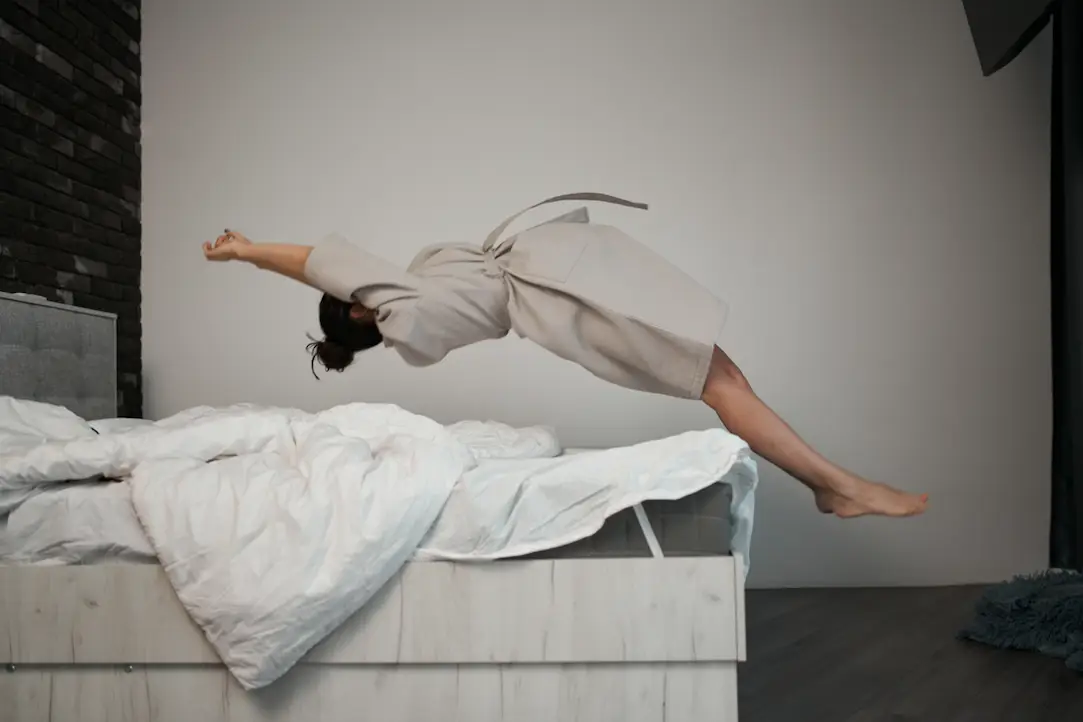
We've all been there - just as you drift off to sleep, you suddenly feel like you're about to fall.
It’s a pretty common occurrence affecting an estimated 70 percent of the population in the US, as explained by Cleveland Clinic.
They're known as hypnic jerks. But what is this phenomenon and is it something you should worry about?

What is sleep myoclonus?
The scientific name for this phenomenon is sleep myoclonus (also known as hypnic myoclonus), and happens when you shift from one sleep phase into another. During these sleep transitions, the body muscles can have spasms called hypnagogic jerks (or hypnic jerks), and are more likely to happen when you’re falling asleep, or during the light stage of sleep that follows this first moment in the sleep cycle.
Advert
The medical term 'myoclonus' describes sudden, brief, and involuntary muscle contractions or twitches. Hiccups are another common example.
Why does it happen?
According to sleep disorders specialist Reena Mehra, MD, MS, there are several possible explanations as to why sleep myoclonus is pretty common.
The most plausible theory is that the body misinterprets the light sleep phase as wakefulness while also recognising that the muscles aren’t moving. The brain then sends a message to the muscles to check they’re still working so to keep then active as a way to protect the body.
The neurotransmitters released carry the message from your nerve cells, attaching to your muscle protein cells. This attachment signals the cells to act in a certain way, causing your muscles to move.
What causes sleep myoclonus?
There is no clear cause of a hypnic jerk, but there are some theories about why they occur, including extreme tiredness and sleep deprivation, stimulants such as caffeine and nicotine, stress and anxiety, Medical News Today reports. You likely won't need to consult a doctor or seek medical treatment unless the sleep myoclonus leads to other symptoms, such as incontinence, injury, pain, or confusion. If your myoclonus symptoms become frequent and persistent, you should consult a doctor, Mayo Clinic warns.
What can you do to reduce sleep myoclonus?
There are a few tips to follow if you want to improve your sleep hygiene and reduce your proneness to hypnic myoclonus.

Manage your stress
The goal should be to reduce your stress level before heading to bed, including cutting down on screen time, implementing a sleep routine or practicing meditation, and planning for the next day earlier in the day rather than when you’re in bed.
Reduce your drug and alcohol consumption
Stimulants can increase the chance of having your body twitch when you’re in bed. This happens because drugs and alcohol can prevent you from getting nourishing sleep and enter the deeper phases of the sleep cycle, thus resulting in hypnic jerks or feelings of movement while in light sleep.
Cut down your caffeine intake
Caffeine is known to have a stimulant effect than can hinder your sleep.
Too many cups of coffee won't just keep you awake at night, they can also induce myoclonus if you do manage to fall asleep.
Sleep more
You should try and get more sleep while taking into account all the tips above. You need to complete a sleep cycle to fell fully rested. If you don’t get your hours in, the lack of sleep can increase the likelihood of twitching.
